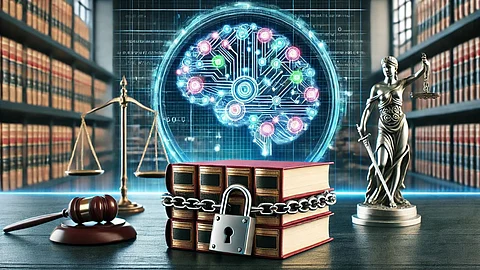

The Kerala High Court has introduced a strict policy prohibiting the use of artificial intelligence (AI) tools for decision making or legal reasoning by the state’s district judiciary.
Titled ‘Policy regarding use of artificial intelligence tools in district judiciary’, the document was issued on July 19 and is reportedly the first of its kind in India. It applies to all district judges, judicial officers, court staff, interns, and law clerks working in Kerala.
According to the guidelines, AI tools can be used only as assistive aides for permitted tasks and never as a replacement for human judgement. Any use of AI to arrive at judicial findings, reliefs, orders or judgments is expressly banned.
The court has advised judicial officers to “exercise extreme caution” while using such tools, warning that indiscriminate reliance on AI may lead to privacy breaches, data security issues, and loss of public trust in the judiciary.
The policy outlines that the use of tools like ChatGPT, Gemini, Copilot and Deepseek, or any generative AI and AI-based databases, must be carefully supervised, with full human oversight at every stage.
Use of cloud-based services has been restricted, unless specifically approved. Results generated by AI, including translations and legal references, are to be verified thoroughly by a human before being considered for any official use.
Every instance of AI usage will have to be documented. Courts must maintain audit trails listing the tools used and how the outputs were verified. The policy clarifies that the judge alone bears full responsibility for the content of any judgment or order.
Any breach of the policy could invite disciplinary action under existing service rules.
Judicial officers and staff have also been instructed to take part in training programmes covering the ethical, technical and legal aspects of AI. Any errors or inconsistencies found in AI-generated content must be reported without delay.
District judges and chief judicial magistrates have been directed to circulate the policy among all officers and ensure strict compliance.